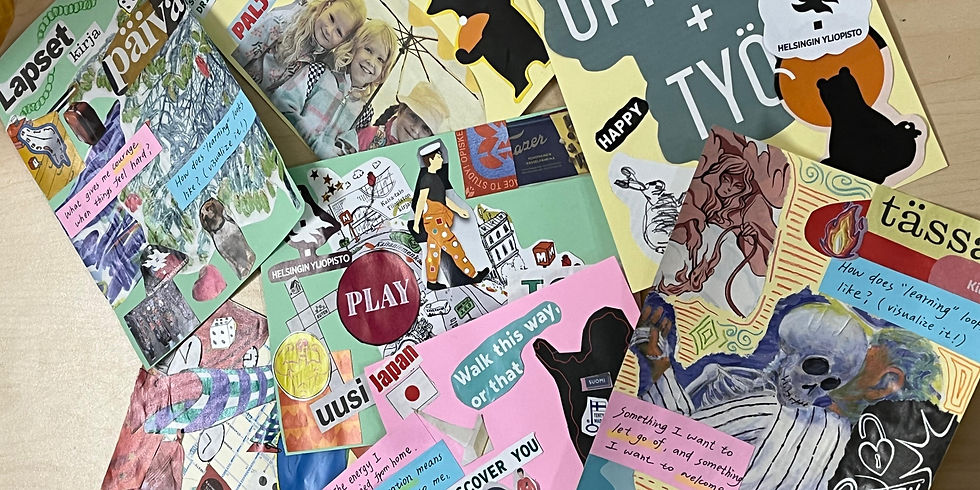My Professional Identity: A Reflective Journey as a Chilean Teacher in the Educational field
- Dominga Miranda
- Oct 31, 2025
- 3 min read
About Me
My name is Dominga, I am a Chilean Primary School teacher. I hold a Bachelor’s Degree in General Pedagogy from the Pontificia Universidad Católica de Chile. Over the past several years, I’ve had the privilege of teaching in diverse educational settings. I began my career at an Indigenous school in Southern Chile, spending a year immersed in a rural and culturally rich environment. Later, I taught for five years at CREE Cerro Navia in Santiago, covering core subjects such as Social Sciences, Natural Sciences, Mathematics, and Language, before specializing in Spanish Language, Communication, and Literature.
Throughout my journey, I’ve also taken on leadership roles, including serving as Head of the Language Division for Grades 5–8 and as Academic Coordinator for Grades 5 through I° Medio, focusing on curriculum design and teacher mentoring. These experiences have shaped my perspective on education, leadership, and the importance of supporting teachers in meaningful ways.

My journey in Changing Education
When I started my Master’s, I felt both excited and a little apprehensive. Returning to academic life after six years away came with worries: Would I still know how to summarize key ideas? Could I keep track of complex research without getting lost in details? Surprisingly, slipping back into student mode was easier than I expected. I quickly realized that reading, writing, and participating in academic discussions felt natural again.
Still, the first few months left me feeling somewhat adrift. I wasn’t yet clear on my thesis topic or the direction I wanted to take in my career. Conversations with educators from around the world, however, helped me find clarity. Sharing my experiences and listening to theirs reaffirmed that my place is in schools—for now, at least. While academia is fascinating, my passion lies in supporting teachers directly, especially those working in challenging contexts.
What motivates me most is the chance to create real change in schools. I want to help teachers thrive, not just survive. I am particularly drawn to Acceptance and Commitment Therapy (ACT), and my current research with pre-service teachers has shown me how promising this approach can be. Seeing how psychological flexibility can support teachers makes me excited about applying these strategies in real school settings.

Next Steps
Reflecting on my journey, I’ve been drawn to the ideas of Klein (2021), who emphasizes the power of values in shaping the identity and culture of organizations. Values are not just abstract principles; they guide behaviour, influence how people respond to change, and define the heart of an institution. I’ve witnessed this firsthand in schools with strong organizational cultures: teachers and staff were more aligned, committed, and motivated because the school lived its values every day.
My vision now is to blend ACT with these organizational insights to strengthen the schools where I work. I see my role as both a mentor and a contributor to wider cultural and organizational change. By focusing on teacher well-being and retention, I hope to create environments where educators feel supported, valued, and able to grow professionally.
I’ve also been inspired by the concept of distributed leadership (Heck & Hallinger, 2010). Leadership is not only the responsibility of principals or coordinators—it can be shared among many members of a school community. Even if I am not in a formal leadership position, I can contribute as a “complementary leader,” supporting teams and fostering collaboration in meaningful ways.
Looking five years ahead, I envision myself at CREE School in a position of high leadership, mentoring teachers and helping cultivate a culture that truly values the teaching profession. My goal is to support teachers in developing psychological flexibility, resilience, and confidence, while building collaborative networks that strengthen the entire school community.
Reflecting on my journey, from teaching in rural classrooms to coordinating academic programs, has been both emotional and inspiring. Revisiting my past experiences and achievements has deepened my appreciation for the work I do and confirmed that I am on the right path. After completing my Master’s, I am determined to return to the school I care deeply about; a place where even ambitious ideas can become reality and where I can make a meaningful contribution to public education in Chile.

References:
Heck, R. H., & Hallinger, P. (2010). Collaborative leadership effects on school improvement: Integrating unidirectional- and reciprocal-effects models. The Elementary School Journal, 111(2), 226–252. https://doi.org/10.1086/656299
Klein, J. (2021). Reflecting backward to project forward: Refocusing on values in organizational change. The Journal of Applied Behavioral Science, 57(4), 421–427. https://doi.org/10.1177/002188632110330
About the Author

Dominga is a primary school teacher from Chile, specialized in Spanish Language, Communication, and Literature, and currently studying the Changing Education Master's Programme.




Comments